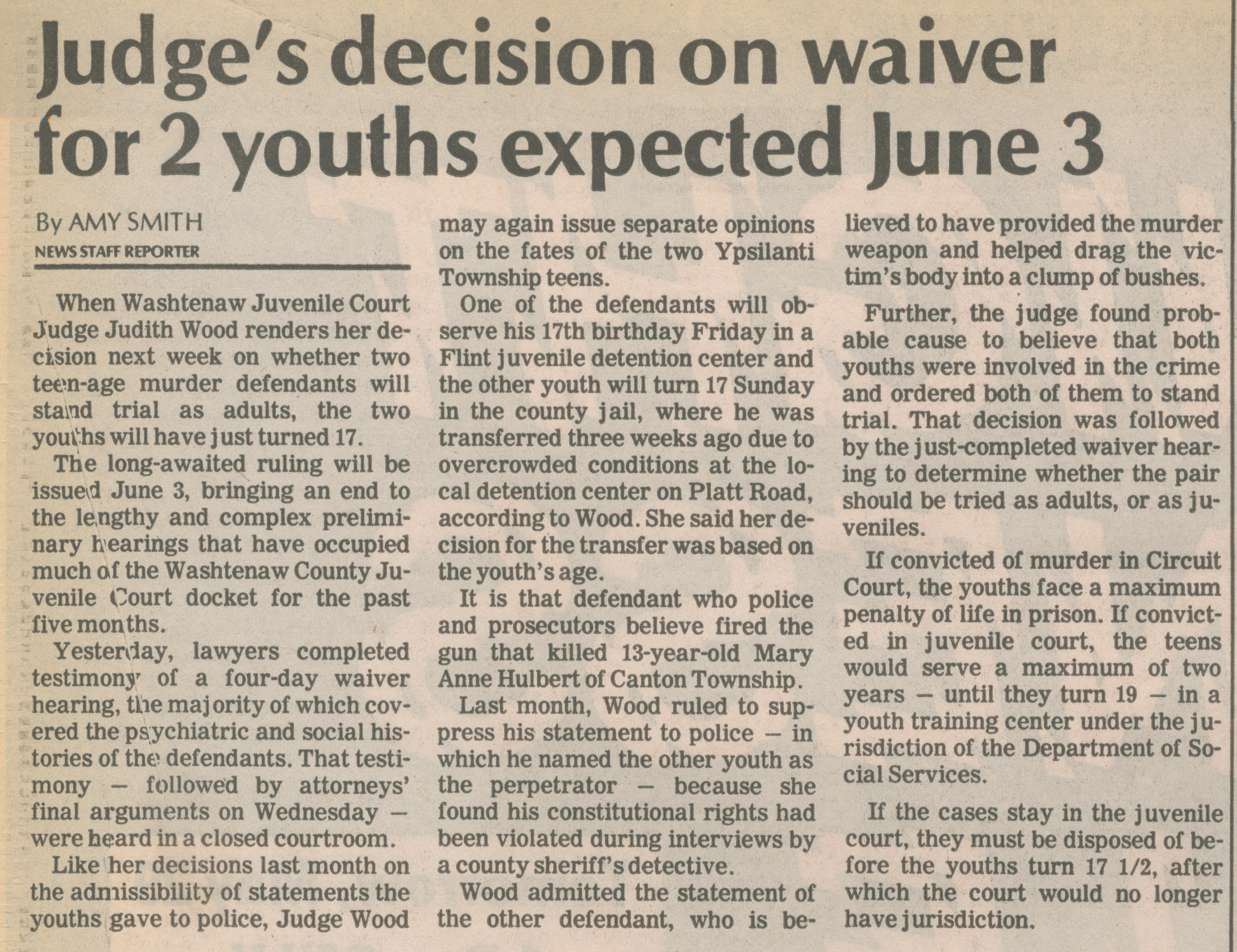Judge's Decision On Waiver For 2 Youths Expected June 3

Judge's decision on waiver for 2 youths expected June 3
By AMY SMITH
NEWS STAFF REPORTER
When Washtenaw Juvenile Court Judge Judith Wood renders her decision next week on whether two teen-age murder defendants will stand trial as adults, the two youths will have just turned 17.
The long-awaited ruling will be issued June 3, bringing an end to the lengthy and complex preliminary hearings that have occupied much of the Washtenaw County Juvenile Court docket for the past five months.
Yesterday, lawyers completed testimony of a four-day waiver hearing, the majority of which covered the psychiatric and social histories of the defendants. That testimony - followed by attorneys’ final arguments on Wednesday -was heard in a closed courtroom.
Like her decisions last month on the admissibility of statements the youths gave to police, Judge Wood may again issue separate opinions on the fates of the two Ypsilanti Township teens.
One of the defendants will observe his 17th birthday Friday in a Flint juvenile detention center and the other youth will turn 17 Sunday in the county jail, where he was transferred three weeks ago due to overcrowded conditions at the local detention center on Platt Road, according to Wood. She said her decision for the transfer was based on the youth’s age.
It is that defendant who police and prosecutors believe fired the gun that killed 13-year-old Mary Anne Hulbert of Canton Township.
Last month, Wood ruled to suppress his statement to police - in which he named the other youth as the perpetrator - because she found his constitutional rights had been violated during interviews by a county sheriff’s detective.
Wood admitted the statement of the other defendant, who is believed to have provided the murder weapon and helped drag the victim’s body into a clump of bushes.
Further, the judge found probable cause to believe that both youths were involved in the crime and ordered both of them to stand trial. That decision was followed by the just-completed waiver hearing to determine whether the pah-should be tried as adults, or as juveniles.
If convicted of murder in Circuit Court, the youths face a maximum penalty of life in prison. If convicted in juvenile court, the teens would serve a maximum of two years - until they turn 19 - in a youth training center under the jurisdiction of the Department of Social Services.
If the cases stay in the juvenile court, they must be disposed of before the youths turn 17 1/2, after which the court would no longer have jurisdiction.